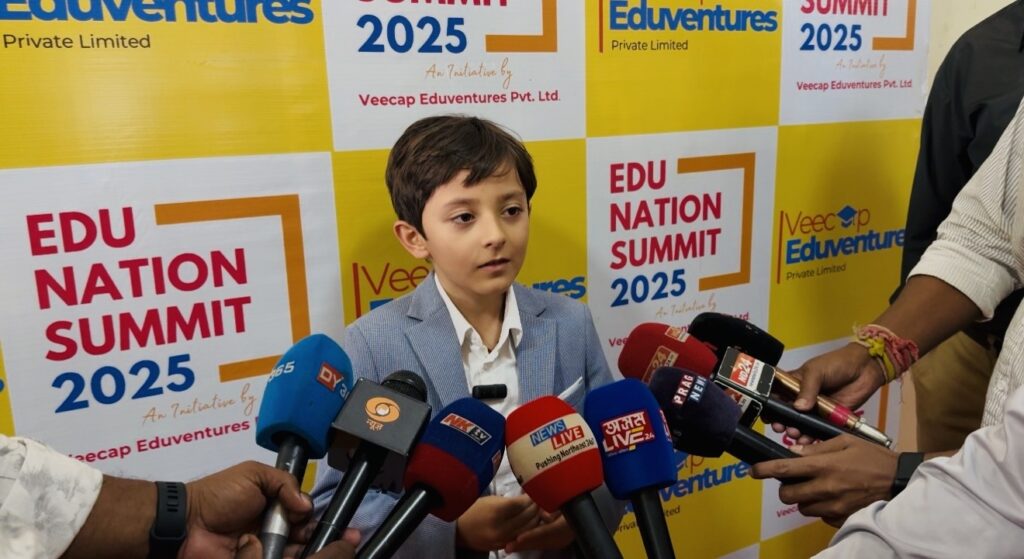Amit Thakkar saw first hand how messy and inefficient politics can be from the inside. While working as a political consultant for a decade, Thakkar said he became frustrated with seeing the same old players decide policy with almost no influence from actual constituents or voters.
That’s a large part of why he decided to create LawMaker.io, which bills itself as a revolutionary platform that gives those in the U.S. the chance to create propositions for new laws through crowdsourcing. That allows for support to build for popular ideas that are eventually handed over to legislators to propose them as real laws. Touting itself as a “free lobby for the lobbyless,” Thakkar said its a platform that could very much change the face of U.S. democracy.
“It didn’t make sense to me that such a small group of wealthy and well-connected people had such an outsized influence on the laws that are written and the way our government works,” he told Techli. “I knew there needed to be a free way that all Americans could propose common-sense ideas for laws and influence elected officials in a way that benefitted all Americans instead of just a powerful few.”
Lawmaker.io works by finding ideas at the ground level that can shape politics and then making sure it gets a wider audience after a user proposes a policy idea. It’s then shared widely by the user and suggestions are made for possible amendments to the initial proposal. Support is then gathered until the idea has at least 100 registered supporters and it is eventually sent off to the appropriate legislators.
LawMaker.io recently held its 2nd Lawmaker Challenge to offer up a winning policy proposal to legislators. As the Supreme Court’s Citizen United has become so influential in allowing big money to essentially buy politics, the winning proposal looked to reverse the impacts of the decision and shift back influence to voters over the power of wealthy interests.
“The right to vote is the cornerstone of our democracy — and the participation of every eligible voter is critical for the strength of that foundation,” said Congresswoman Julia Brownley, who issued the winning policy challenge. “It’s my job to represent you, and hearing your ideas is a critical part of how I do that.”
Thakkar has said that Lawmaker users can have a say on both local and state policy by coming together on key issues. Essentially, it makes it harder for political representatives to ignore their constituents by giving those citizens a way to consistently and powerfully begin conversations on making lasting change in communities and states.
Startup Beat had an exclusive Q&A with Thakkar on the idea behind his startup and its potentially enormous impact on the American political landscape. Excerpts follow:
StartupBeat: How can Lawmaker potentially shape the face of American politics by getting more people involved in a more efficient way?
Amit Thakkar: During the process of designing and building LawMaker, we spend two years talking to and surveying thousands of Americans about their civic habits and feeling about political engagement. Overwhelmingly, people told us that they didn’t truly believe their civic engagement made really any difference on their government. This is backed up by a 2014 Princeton study that found that “the preferences of the average American appear to have only a minuscule, near-zero, statistically non-significant impact, upon public policy.” Both the real and perceived lack of political impact demotivates many Americans from learning about complex political topics, contacting their elected officials, and even voting. Why spend any of your precious time on dry political issues if you don’t think your time and energy will have any impact on them? We built LawMaker to change this.
When you see how much effort political candidates put into canvassing, GOTV, advertising, mailers, and voter outreach, you realize where voter power lies. We wanted to take the power at the voting booth and show people how to leverage it between election. LawMaker empowers voters to proactively propose policy ideas that will improve their lives from the federal level, all the way down to the city level. They then use their already ingrained social media habits to share the ideas with others, crowdsource amendments, and build a coalition of supporters. And then they use our tools to publicly engage their elected officials.
But here’s the kicker. Come the next primary and the next election, LawMaker sends users their whole ballot, noting how elected officials and candidates responded to the issues each user engaged with, or whether they responded at all. Voters now get to make a more educated choice about who they want on their ballot and in their government, based on tangible information about a candidates positions on issues and responsiveness to their constituents.
Even though we launched just eight months ago, LawMaker users already have a grassroots crowdsourced policy idea making its way through the legislative process in the City of Los Angeles (http://clkrep.lacity.org/
SB: Is this something that you have noticed young people especially have rallied around using, or does it vary by demographic?
AT: We were actually a bit surprised to see the demographic makeup of our users. Yes, or biggest demographic is among young millennials and Gen Zers, between the ages of 16-35. But our second biggest demographic, in close numbers, is 55 and above, which we didn’t expect. When talking to our users, we realize their motivations to participate in the type of civic action LawMaker empowers has a lot to do with where they lie on the cynicism and frustration spectrums. Our younger users are not very cynical — they still believe the system can and should be changed, and that they can play a role. They are frustrated about particular policy issues, but in general, haven’t had prolonged negative interactions with the political system. Their belief in the potential for change brings them to LawMaker.
For our older users, it seems to work in reverse. They are extremely cynical about the ability to change the system but they are also extremely frustrated. Many of these users have in fact reached out to us to say that they’re not sure if their elected officials are actually listening to them, but they are so frustrated and fed up, they are willing to try something new. To them, being able to propose their own ideas and build support without first getting stonewalled by their elected officials, is an exciting part of LawMaker’s potential.
SB: What are some success stories of proposals or potentially bills that have been able to come thanks to Lawmaker’s creation?
AT: As I mentioned above, we currently have a policy idea, completely crowdsourced and amended by LawMaker users, making it’s way through the legislative process in the City of LA. Jamie Tijerina, a young research scientist, crafted an idea that would help people like her engage in civic issues. She proposed that a certain percentage of public hearings, including city council, commission, and committee hearings, be held after 5 pm to allow people who work 9-to-5 jobs a great opportunity to participate in the City’s decision-making process. Her policy idea received support by other Angelenos, and LA City Councilman David Ryu, and City Council President Herb Wesson, wrote it into a motion that’s making it’s way through committee as we speak: http://clkrep.lacity.org/
The best part of this story is how it galvanized Jamie, and her community to lobby for their own interests. Not only did she propose an idea for a policy that would help her, but she’s become a consistent advocate for this change. Because of Jamie’s advocacy and outreach, this motion has received 22 letters of support, including community impact statements from four of LA’s neighborhood councils — unheard of for a procedural policy like this. Jamie was even invited to do a podcast with the City of LA’s Department of Neighborhood Empowerment: http://empowerla.org/podcast-
LawMaker’s best stories are when we can empower someone to take a more proactive, more substantial role in the political world around them.
SB: What is the next step for the Web Platform as it continues to grow?
AT: Right now, America is experiencing some politically frustrating times. People who claim to be invested in politics are either screaming at each other or beginning to check out mentally and emotionally. LawMaker is steadfastly focused on showing more people that there is immense potential in civil conversations that are focused on actual policy, not politics. We are about to launch three more LawMaker Challenges sponsored by various California elected officials to bridge the chasm between voters and the people that represent them. In addition to that, we are currently building support and partnerships for an ambitious year-long public dialogue around homelessness in Los Angeles County, which we plan to launch in 2019.
My team’s main goal is to engage as many politically frustrated people as possible and show them that even a little consistent engagement on actual tangible policy issues can make a real political change in the world around them.
We plan to expand our California beta to other states at around 18 months.











